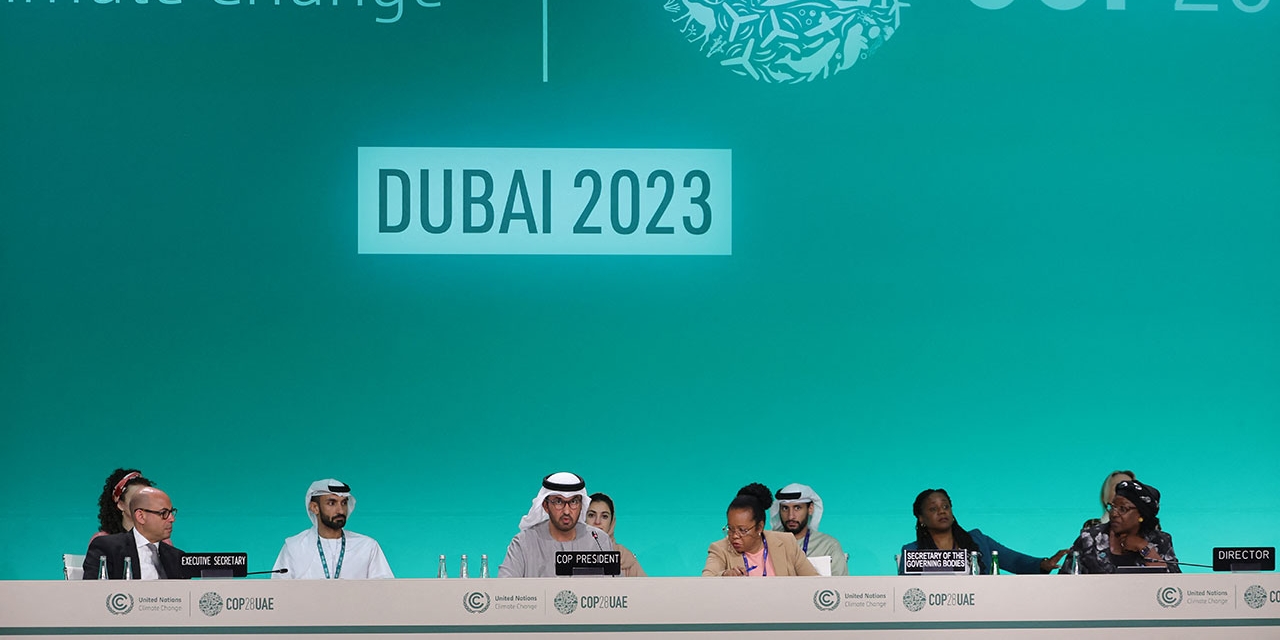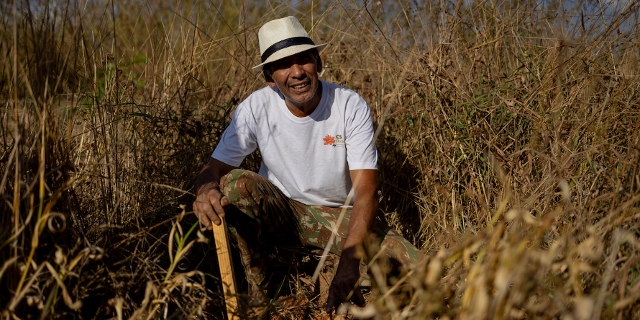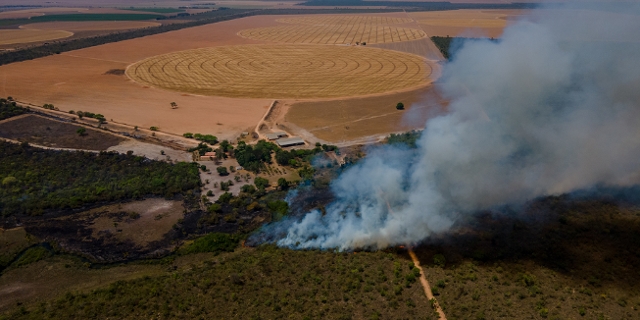COP28: The End Of The Fossil Fuel Era?
24 hours behind schedule, the oil-executive turned Climate Summit president, Sultan Al-Jaber brought down his gavel today on an agreement that, in theory at least, marks the beginning of the end of the fossil fuel era.
He’s called it the UAE Consensus, and, typical of any consensus, it is full of compromises, fudges caveats, back-doors and qualifiers. After all 190 nations had to be on board, including those whose economies are bases on climate pollution. But it does include and explicit calls on all countries to transition away from using fossil fuels.
„Not Enough Clarity“
It is easy to be cynical. This is a non-binding text that “calls on”, or in every day language “requests” countries to move to a cleaner future. It feels like your doctor urging a man with a serious lung-condition to transition away from cigarettes.
Given the weakness of the draft text published on Monday, Johannes Wahlmüller of Global 2000 was clapping with relief when the gavel fell, but not cheering with euphoria. He complains that the consensus is “too vague” and adds that much “more clarity would have been needed to keep the 1.5 degree Celcius target within reach.
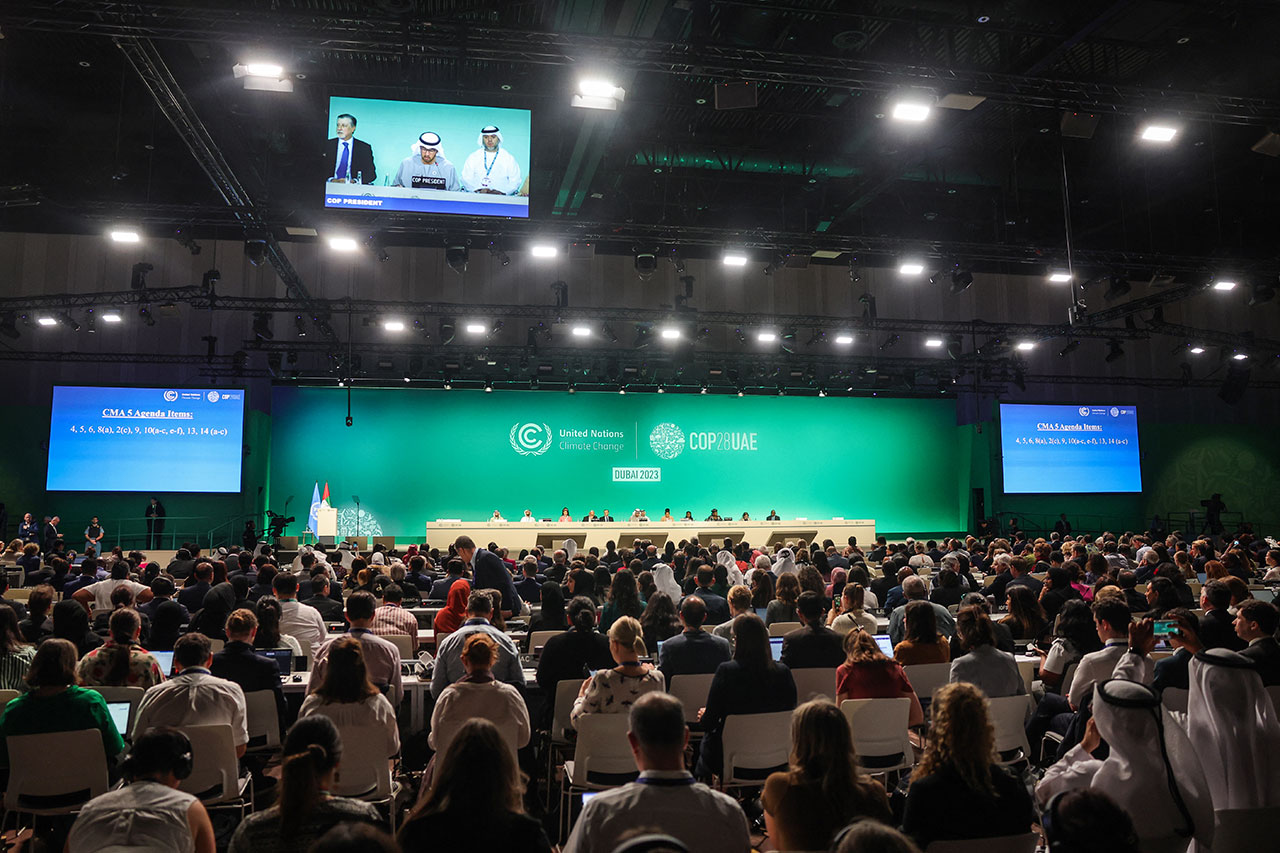
APA/AFP/Giuseppe CACACE
„We are finally naming the elephant in the room“
But let’s try look at the glass as half-full and celebrate that the UN Climate Process has decided to admit reality – fossil fuels are not part of a liveable future. That seems blindingly obvious, but this official recognition in a COP text comes after 30 years of ignoring the dirtiest, smelliest and most dangerous elephant to have ever occupied a small room.
“For the first time in three decades of climate negotiations the words fossil fuels have ever made it into a COP outcome,” says Mohamed Adow, Director of Power Shift Africa”. The genie is never going back into the bottle and future COPs will only turn the screws even more on dirty energy.”
“I think the deal reached at COP 28 is the best deal that we could expect,” concludes Sarah-Louise Nash from Krems University, an expert on the United Nations climate process. “The fact that we have managed to get a decision that includes transition away from these fuels is a big step forward.” Or as Harjeet Singh, head of global political strategy at Climate Action Network International puts it:
“After decades of evasion, COP28 finally cast a glaring spotlight on the real culprits of the climate crisis: fossil fuels.”
Why Did It Take So Long?
It is scientifically beyond doubt that emissions from fossil fuels burning are responsible for the vast majority of human-driven climate heating, so you would be forgive for asking what on Earth were delegates were writing in the texts of the other 27 COPs? Everyone knew the source of the problem but didn’t to mention it in the text for fear of offending the oil and gas exporting lands. That meant that until Glasgow 2021, fossil-fuels, the main-drivers of the climate crisis were studiously ignored in the texts. Even in Scotland there was only mealy-mouthed reference to coal alone.
„A Real Glimmer of Hope“
That it took a Climate Summit hosted in one of the world’s top fossil-fuel exporting states to make any sort of commitment on all fossil fuels is either ironic, poetic or bizarre. Choose your own adjective. But it does feel like the world has stood up in a meeting and finally admitted it has an addiction problem; and that is an important first step.
“The fossil fuel industry, which is destroying the climate and threatening human lives with its unscrupulous actions, has been given an expiry date,” concludes Jasmin Duregger, who has been observing the talks for of Greenpeace Austria This is an important step forward and "a real glimmer of hope on the horizon.”
Too Many Caveats
All that is good, but as always the devil is in the detail.
Let’s go back to Johannes Wahlmüller Mueller of Global 2000 to discuss those many caveats. For example, there’s mention of the carbon capture and storage that might make burning coal, the dirtiest of fossil fuels, all right after all. I have to go back to my cigarettes analogy – imagine if your doctor said it would be OK to keep smoking, because by 2050 we’d have invented a new medicine, currently in a very experimental and unconvincing stage, might clean the damage up in the future. Would you lay your hopes in that? I know I wouldn’t.
But Johannes is also worried about other inserts that have watered down the pledge, “There’s references to ‘bridge technologies’. There are talk of a fossil-fuel energy sources such as gas. However, these would continue to cause greenhouse gas emissions. This means that there is a lot of diversionary tactics contained in the text of this consensus.”
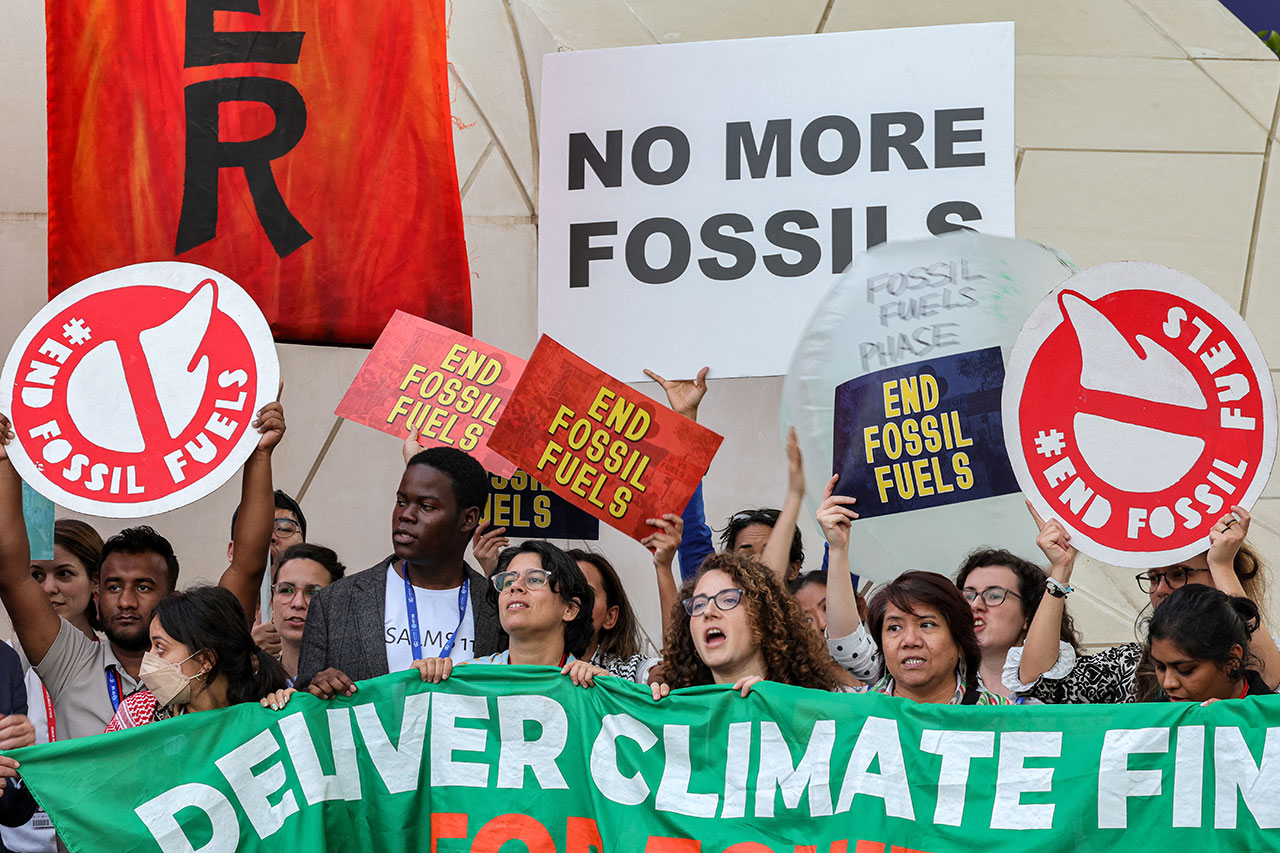
APA/AFP/Giuseppe CACACE
There were a lot of climate demonstrations at the COP28 demanding the end of fossil fuels.
What about Methane?
Gas is also a concern for the group Scientists4Future “as a supposedly more climate-friendly interim solution.” They are worried at the lack of understanding of how “natural gas consists predominantly of methane, a greenhouse gas that is many times more powerful than CO2.” They point out that during the extraction, transport and consumption of natural gas, not only CO2 is released, but unburned methane also escapes in unknown quantities. “The fact is that the increase in the particularly climate-damaging methane content in the atmosphere has accelerated significantly in recent years.”
Where’s The Money?
There are also issues with the money, complains Romain Ioualalen, Global Policy Manager at Oil Change International, who says “this agreement does not deliver the full, fast, fair, funded phaseout of fossil fuels that global communities urgently demand.” We want poorer countries to not exploit their fossil-fuel resources (think of Uganda and its EACOP project) and to move quickly to hi-tech green technology, but they want funding to be able to do that. “Rich countries must pay their fair share to enable a just transition in the Global South,” says Ioualalen. “Disgracefully, the agreement is littered with loopholes, leaving escape hatches for the fossil fuel industry that could undermine the transition away from fossil fuels.”
An Important Signal
Sarah-Louise Nash recognizes the emissions and agrees that it is “not ideal” that the language is “really aspirational and not as concrete as I would have liked” but she urges us not to dismiss the process.
“It gives us a new lever to put pressure on countries to really start implementing these things that are in the COP decision and to start moving quicker and more determinedly away from fossil fuels.”
What happens next in Austria?
COPs matter only when the promises, pledges or grandstanding statements are actually turned into genuine climate action. Austria, as part of the EU, was part of the lobby for stronger climate action, for a genuine fossil fuel “phase out”. But Austria is also exploring for more gas and oil, is also building more roads and there are moves in Europe to slow down the transition away from combustion-engine vehicles.
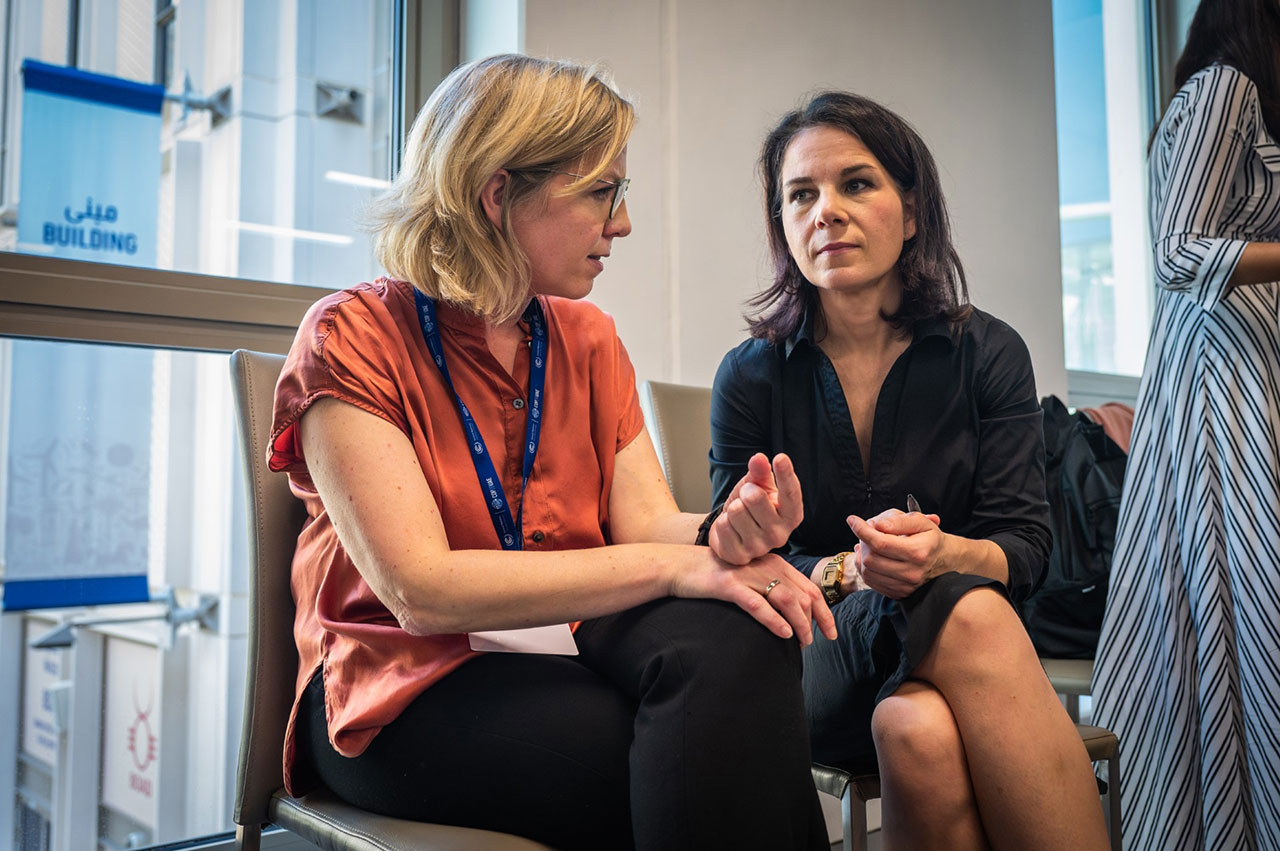
APA/BMK/CAJETAN PERWEIN
We can’t moan about petrostates want to produce more money spinning fossil fuels when we are planning to keep consuming it on a large scale.
That would mean Austria has work to do, say Johannes Wahlmüller:
“We see, for example, an effective climate protection law as a next important step. The phase-out of oil and gas heating should also be legally regulated," says the Global 2000 climate expert. "And we still have around €4.7 billion in environmentally damaging subsidies. We need concrete measures and reform options that need to be put on the table so that this can succeed.”
Publiziert am 13.12.2023







